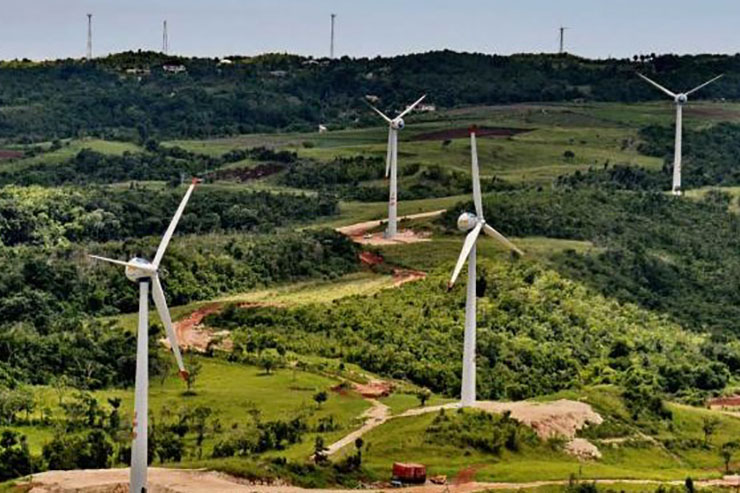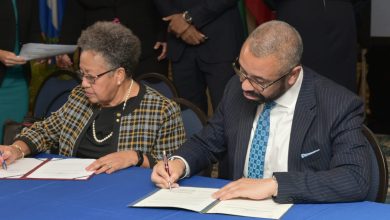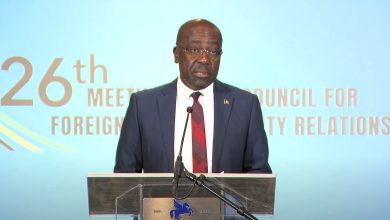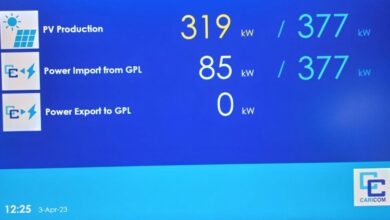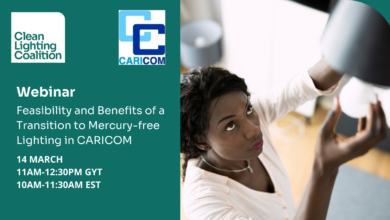Dymphna van der Lans
MANCHESTER, Jamaica, Monday February 23, 2015 – On Friday, officials from the Clinton Foundation joined government leaders and energy experts in Manchester, Jamaica to celebrate the groundbreaking of Phase III of the Wigton Windfarm. This project is expanding what is already the largest wind power project in the Caribbean Community.
At the Clinton Climate Initiative, part of the Bill, Hillary & Chelsea Clinton Foundation, we are excited to be a part of this expansion – helping governments develop and implement their priority clean energy projects in the most efficient and cost-effective way possible by contributing commercial, financial, and legal expertise.
Clean energy projects like Wigton III are becoming increasingly common in the Caribbean, and they represent a positive way for island nations to simultaneously meet the economic challenges of energy consumption and address the threat of climate change. In addition to renewable energy projects, the Clinton Climate Initiative prioritizes energy efficiency upgrades as these are typically the lowest hanging fruit as islands seek to reduce their consumption of diesel.
Island states are disproportionately affected by climate change, specifically rising sea levels and erosion of coast lines. However, other effects of climate change – including severe weather events such as hurricanes, flooding, and droughts – pose immediate and unpredictable threats to island states as well.
We must address climate change on a global scale – not just the effects, but the root causes. All nations have a moral imperative to take steps to decrease greenhouse gas emissions that cause climate change. Island nations have the opportunity to lead the world on a political level by demonstrating the environmental and economic benefits of clean energy solutions.
Island nations are powered primarily by highly pollutive diesel fuel, often with over 90% of their power coming from diesel generation. Typically, diesel generation is expensive with high price volatility, ranging from 30 to 60 cents per kilowatt-hour. Clean energy offers a way to reduce this dependence.
Replete with resources enabling renewable energy to be an affordable and abundant source of electricity, many of these nations are well suited to develop solar, wind, geothermal, small hydro, and waste-to-energy projects. In many island settings, renewable energy is estimated to cost significantly less than diesel, creating an economic case for clean energy without the need for subsidies.
Additionally, the use of diesel power has little to no economic benefit. Aside from the high cost of diesel-generated electricity, generators and diesel fuel must be imported, depleting foreign reserves of island nations. Furthermore, the use of diesel power does not create jobs locally, whereas renewable energy can often generate economic development by originating a need for labor, such as in the construction of solar, hydro, geothermal and wind facilities, or in the organization of waste collection, recycling, and processing of waste to energy.
At the Clinton Climate Initiative, we are working to help island nations take these steps toward establishing energy independence, investing in clean energy, and addressing the causes of climate change. We are currently partnering with 10 Caribbean nations and 25 island states worldwide to establish a working model for island nations to make this transition.
CCI aids governments and assists in the design and implementation of demonstration projects and policies that directly reduce greenhouse gas emissions, and we create replicable and scalable implementation models for others to follow. We provide assistance through partnerships – bringing together individuals and organizations that have the expertise and the resources to make these projects successful. We have seen firsthand the power of these partnerships to forge projects that are more efficient and more effective as a result.
Our charge is to help make investment in clean energy more successful, more efficient and profitable, and bring the technology to scale. We know that this is the right course to take, for island economies in the Caribbean and across the globe. We know this is the right course to sustain our environment and protect the planet for future generations.


